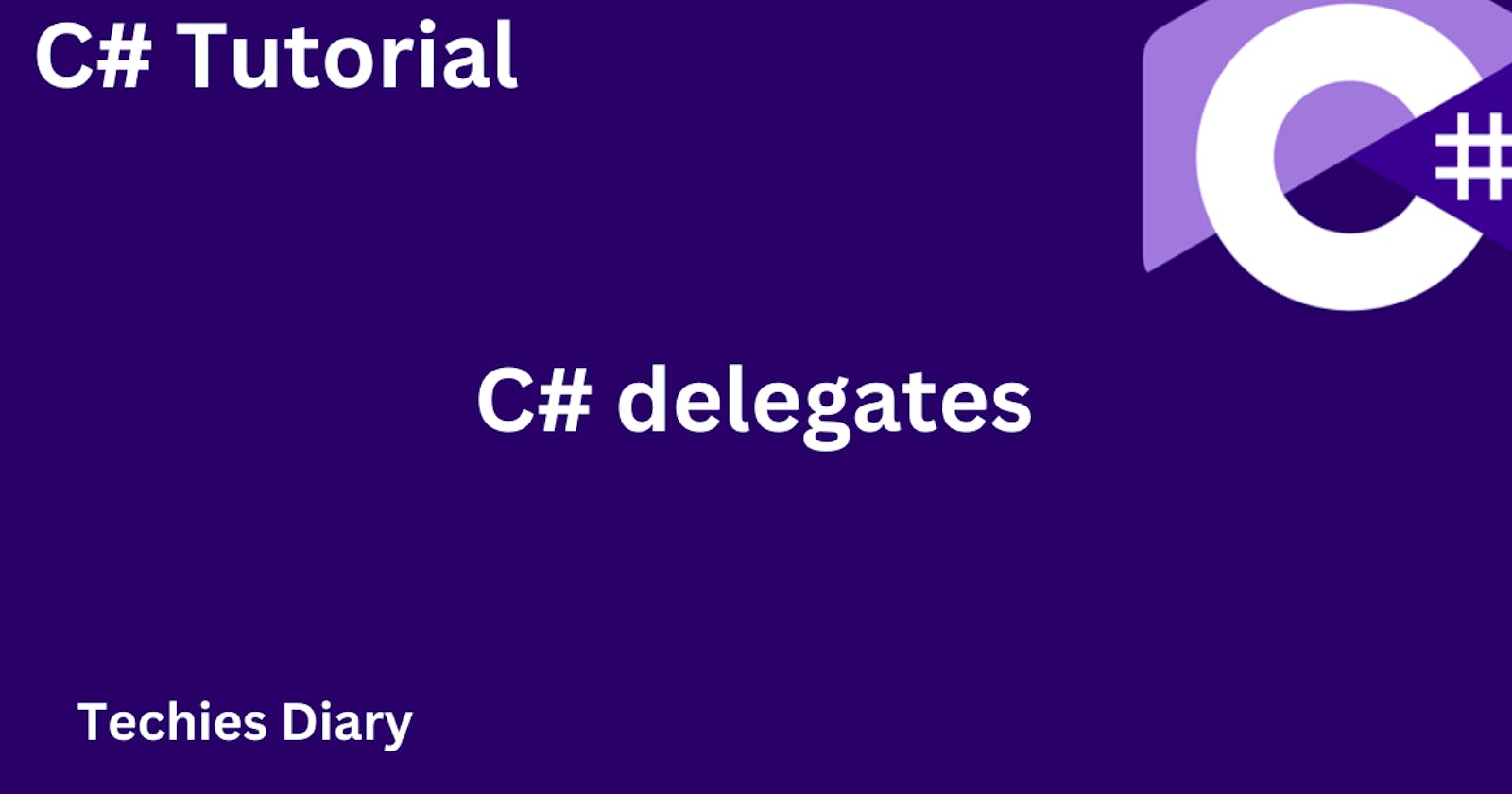What is a delegate?
a delegate is a reference type variable that holds the reference of a method. C# delegates are similar to the C / C++ equivalent of pointers to the method - a delegate holds the address of a method that can be called using the delegate.
A delegate is an object that knows how to call a method.
Defining the delegate
A delegate type defines the kind of method that delegate instances can call. Specifically, it defines the method’s return type and its parameter types. The following defines a delegate type called Transformer:
delegate int Transformer (int x);
above delegate Transformer is compatible with any method with an int return type and a single int parameter. for example
int Square (int x) { return x * x; }
// OR
int Square (int x) => x * x;
assigning a method to a delegate variable creates a delegate instance. a delegate instance can be invoked in the same way as a method.
Transformer t = Square;
int answer = t(3); // 9
//OR
int answer = t.Invoke(3); // 9
// t(3) is shorthand for t.Invoke(3)
Delegates are used to define callback methods and implement event handling.
Delegates allow methods to be passed as parameters.
Delegates can be chained together; for example, multiple methods can be called on a single event (multicast delegates).
Multicast delegates
all delegates have multicast ability which means a delegate instance can reference more than one method.
SomeDelegate d = SomeMethod1;
d += SomeMethod2;
multicast delegates are invoked in the order in which they are added.
a method could be removed at runtime from the multicast delegate.
d -= SomeMethod1;If a multicast delegate has a nonvoid return type, the caller receives the return value from the last method to be invoked. for most of the scenarios where multicast delegates are used, methods have a void return type.
Generic delegate types
A delegate type can have generic type parameters and return type :
public delegate T Transformer<T> (T arg);
int[] values = { 1, 2, 3 };
Util.Transform (values, Square); // Hook in Square
foreach (int i in values)
Console.Write (i + " "); // 1 4 9
int Square (int x) => x * x;
public class Util {
public static void Transform<T> (T[] values, Transformer<T> t) {
for (int i = 0; i < values.Length; i++)
values[i] = t (values[i]);
}
}
The Func and Action Delegates
both Func and Action delegates are reference types that encapsulate a method.
The Func delegate refers to a method that accepts some parameters and returns a value.
The Action delegate refers to a method that accepts parameters but do not return any value.
below is the declaration syntax of a Func delegate :
Func<in_param 1, in_param 2, out_Param > name ;
static void Main(string[] args) {
Func<string, string, string> func = Concat;
string fullName = func("Deepak", "Jain");
Console.WriteLine(fullName);
Console.ReadLine();
}
static string Concat (string firstName, string lastName) {
return firstName + lastName;
}
Below is an example of Action delegate :
Action<in_param> name
static void Main(string[] args) {
Action<string> act = Display;
act("Hello World"); // Hello World
Console.ReadLine();
}
static Display (string content) {
console.log(content);
}
That's it for this article, please share your feedback in comment section.
references and further reading

